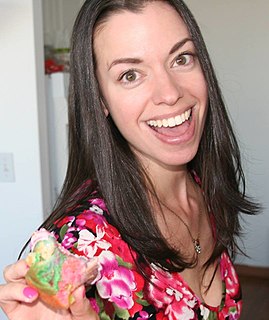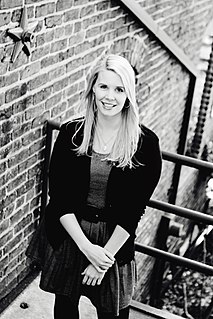A Quote by Courtney A. Kemp
I don't write scenes where one person is right and one person is wrong. It's very much by design that everyone has a point of view that you as an audience member can understand.
Related Quotes
In my view, philosophers have shown a great deal more respect for the first-person point of view than it deserves. There's a lot of empirical work on the various psychological mechanisms by way of which the first-person point of view is produced, and, when we understand this, I believe, we can stop romanticising and mythologising the first-person perspective.
I have no way of knowing whether or not you married the wrong person. But I do know that if you treat the wrong person like the right person, you could well end up having married the right person after all. It is far more important to BE the right kind of person than it is to marry the right person.
I've learned when to get out. I've never wasted too much time with the wrong person, and that's one thing I'm proud of. The longer you're with the wrong person, you could be completely overlooking or not having the chance to meet the right person. And if it doesn't feel right, it isn't right. How do you know if something feels right? I think the great defining factor for me is whether I want more. When they drive away, do I wish they would turn around at the end of the street and come back? Or am I fine that they're going home?
Whenever we feel that we are definitely right, so much so that we refuse to open up to anything or anybody else, right there we are wrong. It becomes wrong view. When suffering arises, where does it arise from? The cause is wrong view, the fruit of that being suffering. If it was right view it wouldn't cause suffering.
Everybody you work with sees what you're doing from a different point of view, a very specific point of view. So, if someone is lighting, they're seeing it from that point of view. A production designer is seeing it from the placement of furniture that tells you about the character. Everything that goes into the room should tell you about the person who lives in that room.
I'm a strong believer in telling stories through a limited but very tight third person point of view. I have used other techniques during my career, like the first person or the omniscient view point, but I actually hate the omniscient viewpoint. None of us have an omniscient viewpoint; we are alone in the universe. We hear what we can hear... we are very limited. If a plane crashes behind you I would see it but you wouldn't. That's the way we perceive the world and I want to put my readers in the head of my characters.
All I've learned in today's Shakespeare class is: Sometimes you have to fall in love with the wrong person just so you can find the right person. A more useful lesson would've been: Sometimes the right person doesn't love you back. Or sometimes the right person is gay. Or sometimes you just aren't the right person.
Thanks for nothing, Shakespeare.
Instead of making others right or wrong, or bottling up right and wrong in ourselves, there's a middle way, a very powerful middle way...... Could we have no agenda when we walk into a room with another person, not know what to say, not make that person wrong or right? Could we see, hear, feel other people as they really are? It is powerful to practice this way..... true communication can happen only in that open space.
I make some movies for myself. I do that sometimes when the subject matter is very sensitive and very personal and I really can't imagine that I'm an audience member. I would lose myself too much if I thought of myself as the audience. There are other types of genre films that I need to be able to direct from the audience, to be right next to you watching the picture being made.






































